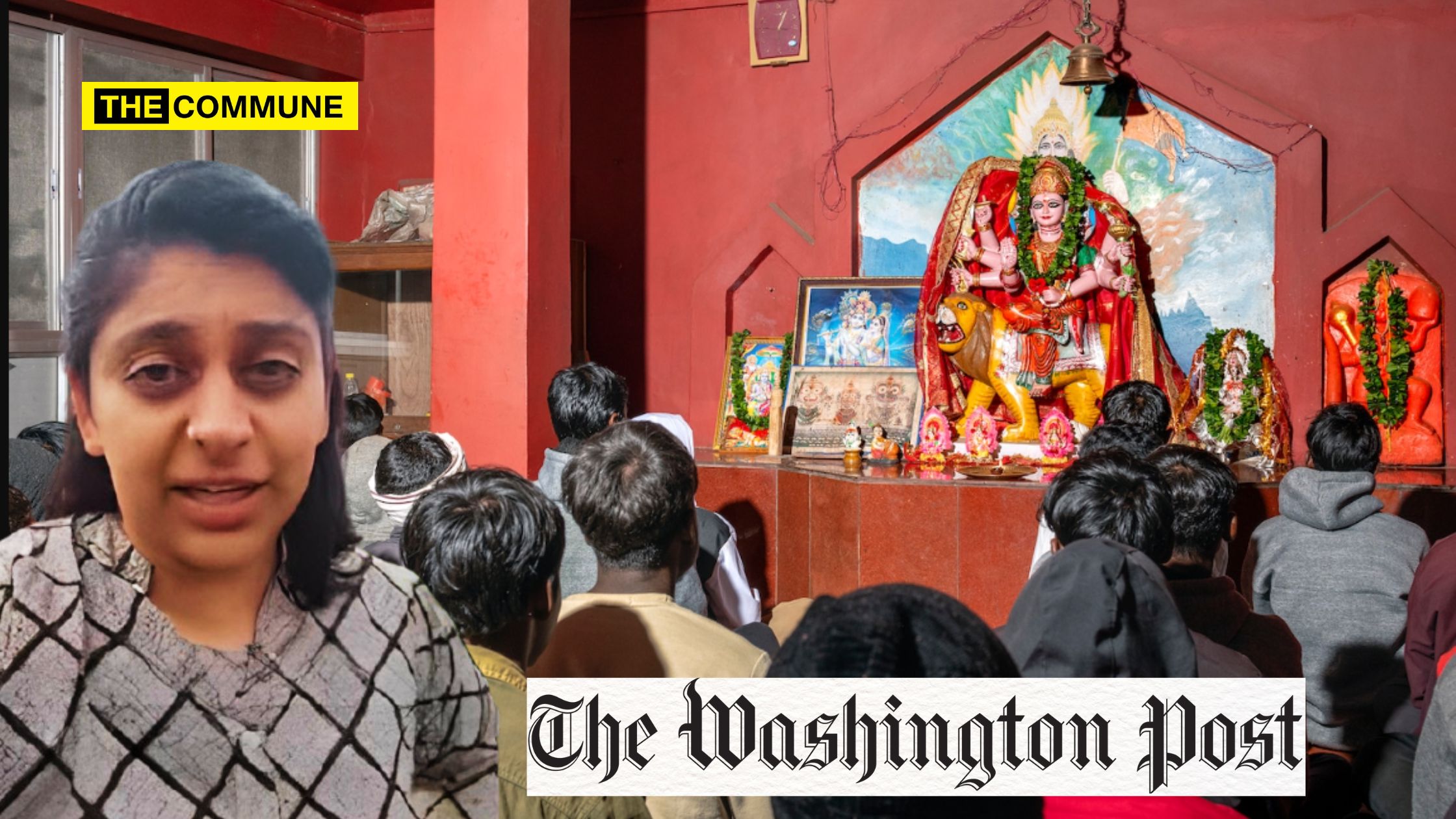
The journalist, comfortably sitting far from the ground realities of Jharkhand, seems indifferent to the aggressive evangelism that seeks to uproot and alter the tribal way of life, often with promises of aid followed by abandonment once the conversions are achieved. However, the journalist is alarmed when Hindu groups work to reconnect these communities to their cultural roots, branding the effort as problematic. A recent piece in The Washington Post exemplifies this concern, as it attempts to create tension between Hindus and tribal communities in Jharkhand.
Published on 1 February 2025, the article ‘Hindu nationalists make gains among India’s tribes and spur backlash’ penned by karishma mehrotra accused Hindu groups of running ‘evangelical campaigns’ aimed at converting tribals to Hinduism. It further claimed that organizations like the RSS were undermining tribal cultures by persuading them to identify as part of the larger Hindu community.
This attack comes at a time when Jharkhand is already grappling with significant proselytism and conversion tactics from Muslim and Christian groups. The Washington Post article suggested that right-wing Hindu groups are trying to transform the country into a Hindu nation, aiming to assimilate millions of tribal people who have traditionally been outside the mainstream religious fold.
The piece belittled the efforts of Hindu organizations trying to preserve the cultural identity of the tribal communities, which are at risk due to predatory conversion tactics. It appears the resistance from these groups against evangelical practices has unsettled the interests of the Washington Post.
Contrary to the newspaper’s claims, Hindu groups in Jharkhand aren’t aggressively pushing for conversions. With Hindus already constituting a majority in the state, their main focus is on preventing the large-scale conversions promoted by Muslim and Christian evangelical groups.
The Washington Post also targeted organizations such as Vikas Bharti and Vanvasi Kalyan Ashram. The article accused Vikas Bharti of dividing the tribal communities by distinguishing them between Hindus, Christians, and nature worshippers. It misrepresented an invitation by Kumkum Maitra of Vikas Bharti to local tribals during Shivratri as an attempt to proselytize nature worshippers.
Another organization, Vanvasi Kalyan Ashram, was also criticized for allegedly competing with Christian evangelists in neighboring Chhattisgarh. The Washington Post referred to controversial figures to make exaggerated claims about the organization’s activities, including the accusation that Vikas Bharti was conducting ‘ghar wapsi’ (reconversion) of tribals who had previously converted to Christianity.
The article also touched on the ongoing controversy around the Sarna Code, which seeks to classify tribal communities as a distinct religious group. In 2020, the Jharkhand government moved to include Sarna as a separate religion in the 2021 Census. While the BJP supported the initiative, it remains a contentious issue. Some in the RSS believe that tribal communities should be considered part of Hinduism, a belief actively promoted through organizations like Vanvasi Kalyan Ashram.
Sarna Code supporters argue that recognizing the Sarna identity would better protect the cultural practices of tribal communities. However, the Washington Post framed the debate as a conflict between Hindus and ‘nature worshippers’, suggesting that the push for the Sarna Code was a challenge to Hindu organizations’ efforts.
The article concludes by highlighting a tribal nurse working with Vanvasi Kalyan Ashram, who allegedly felt forced to identify as Hindu despite identifying as Sarna. This serves to further paint the situation as one of coercion and division.
In sum, the Washington Post‘s article reflects a broader attempt to stir discord and create a divide between Hindu groups and tribal communities in Jharkhand, presenting Hindu efforts to reconnect tribals with their cultural roots as a threat to tribal identity.
Who Is Karishma Mehrotra?
Karishma Mehrotra is a journalist known for her anti-establishment views, working for The Washington Post. She has often been accused of writing articles that criticize the Indian government and promote anti-Hindu sentiments. Despite facing backlash and having some of her narratives debunked, she continues to push these agendas under the guise of journalism, with little regard for the consequences.
Her writings have been viewed as an attempt to tarnish India’s image on international platforms, often through misleading or inaccurate portrayals. Below are examples of her work that highlight this ongoing effort to spread biased narratives about the government.










(With Inputs From OpIndia)
Subscribe to our channels on Telegram, WhatsApp, and Instagram and get the best stories of the day delivered to you personally.




